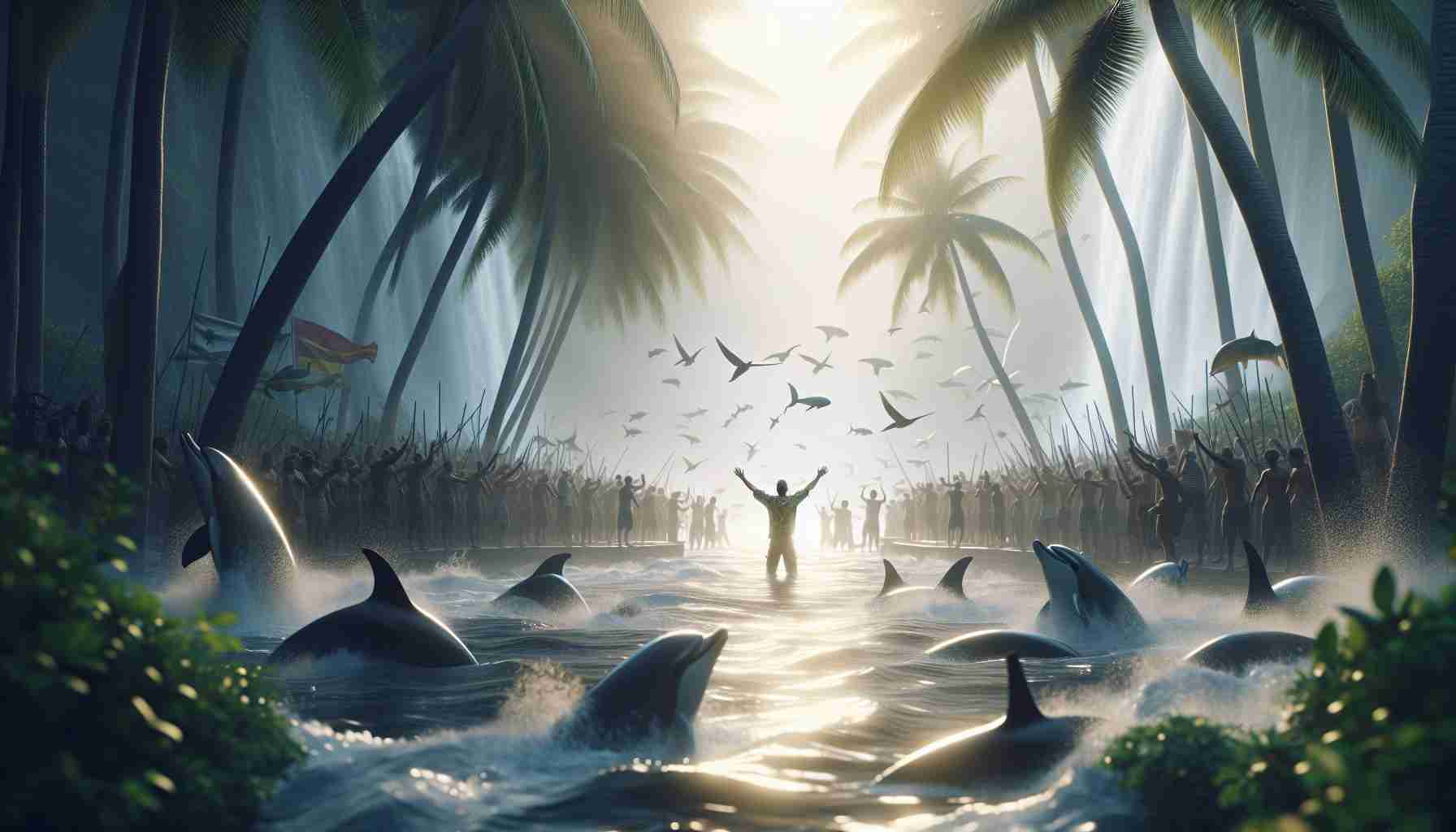The battle against whaling intensifies as a key figure regains freedom. Paul Watson, the founder of Sea Shepherd, is back in Europe, igniting discussions worldwide.
Recently, Danish authorities made headlines by releasing Watson, who had been held in Greenland. This decision followed Japan’s request for his extradition, which was ultimately denied. The Danish government hinted that their release decision was based on a comprehensive evaluation of the situation.
Following his release on December 17, Watson swiftly made his way to France, where he organized a rally in Paris. At this gathering, he reiterated his mission to “end whaling” on a global scale, capturing the attention of marine conservation advocates.
Back in 2010, Watson became the subject of an arrest warrant issued by Japan’s Coast Guard due to his interference with Japan’s research whaling operations. This led to an international manhunt after an Interpol alert was issued, culminating in his arrest in Greenland earlier this year.
Despite the ongoing controversy surrounding whaling, there is substantial support for Watson in Europe, particularly from countries opposing whaling practices. Leaders like French President Macron have expressed solidarity with him. However, nations like Norway and Iceland continue to support commercial whaling, highlighting the complex international attitudes towards this contentious issue. As the debate continues, Watson’s actions and the global response remain focal points in the fight against whaling.
Whaling Controversy Reignites as Paul Watson Advocates for Marine Conservation
The Resurgence of Paul Watson
Paul Watson, the founder of the marine conservation organization Sea Shepherd, has returned to Europe, re-energizing global discussions on whaling. Recently released from custody in Greenland, where he was detained at the request of Japan, Watson’s freedom has sparked both support and criticism. His rallying cry to “end whaling” has found a receptive audience in many European nations, particularly among those advocating for marine preservation.
Key Developments in the Whaling Debate
1. Legal and Political Context: The Danish authorities decided to release Watson after a detailed assessment of the situation, emphasizing the importance of understanding international jurisdiction and the complex legalities surrounding extradition requests in environmental advocacy cases.
2. Public Support and Activism: Watson’s arrival in France was marked by significant public support, with rallies attracting crowds of marine conservation supporters. This event illustrates the strong movement against whaling practices, particularly in countries like France, which have openly criticized whaling nations.
The Global Stance on Whaling
Supporters vs. Opponents
– Pro-Whaling Nations: Countries like Norway and Iceland maintain commercial whaling practices, arguing for cultural and economic reasons. Their stance creates a stark contrast with the growing opposition from other nations, which view whaling as an outdated practice that threatens marine biodiversity.
– International Solidarity: High-profile political figures, including French President Emmanuel Macron, have publicly supported Watson, demonstrating a willingness among some leaders to confront the whaling issue and advocate for stricter protections for marine life.
Pros and Cons of Whaling
Pros
– Cultural Significance: For some communities, whaling is a traditional practice with historical importance.
– Economic Factors: Whaling can provide economic benefits in terms of employment and income in certain regions.
Cons
– Environmental Impact: Whaling poses significant risks to whale populations, many of which are endangered.
– Ethical Concerns: Increasing awareness of animal rights raises moral questions about the justification of whaling in modern society.
Future of Whaling: Trends and Predictions
As global awareness of climate change and biodiversity loss grows, the future of whaling appears increasingly precarious. Predictions suggest that:
– Stricter Regulations: International bodies like the International Whaling Commission (IWC) may impose more stringent regulations as public opinion shifts further against whaling.
– Increased Activism: Activism and public demonstrations, led by figures like Watson, are likely to continue gaining traction, putting pressure on governments to take a stand against whaling.
Conclusion
The release of Paul Watson is not just a significant personal development but a pivotal moment in the ongoing battle against whaling. With the backing of influential leaders and public support, the movement for marine conservation is poised for growth. As the international community grapples with these complex issues, the conversation around whaling will remain a crucial element of environmental advocacy.
For more insights on marine conservation and the fight against whaling, visit Sea Shepherd.
